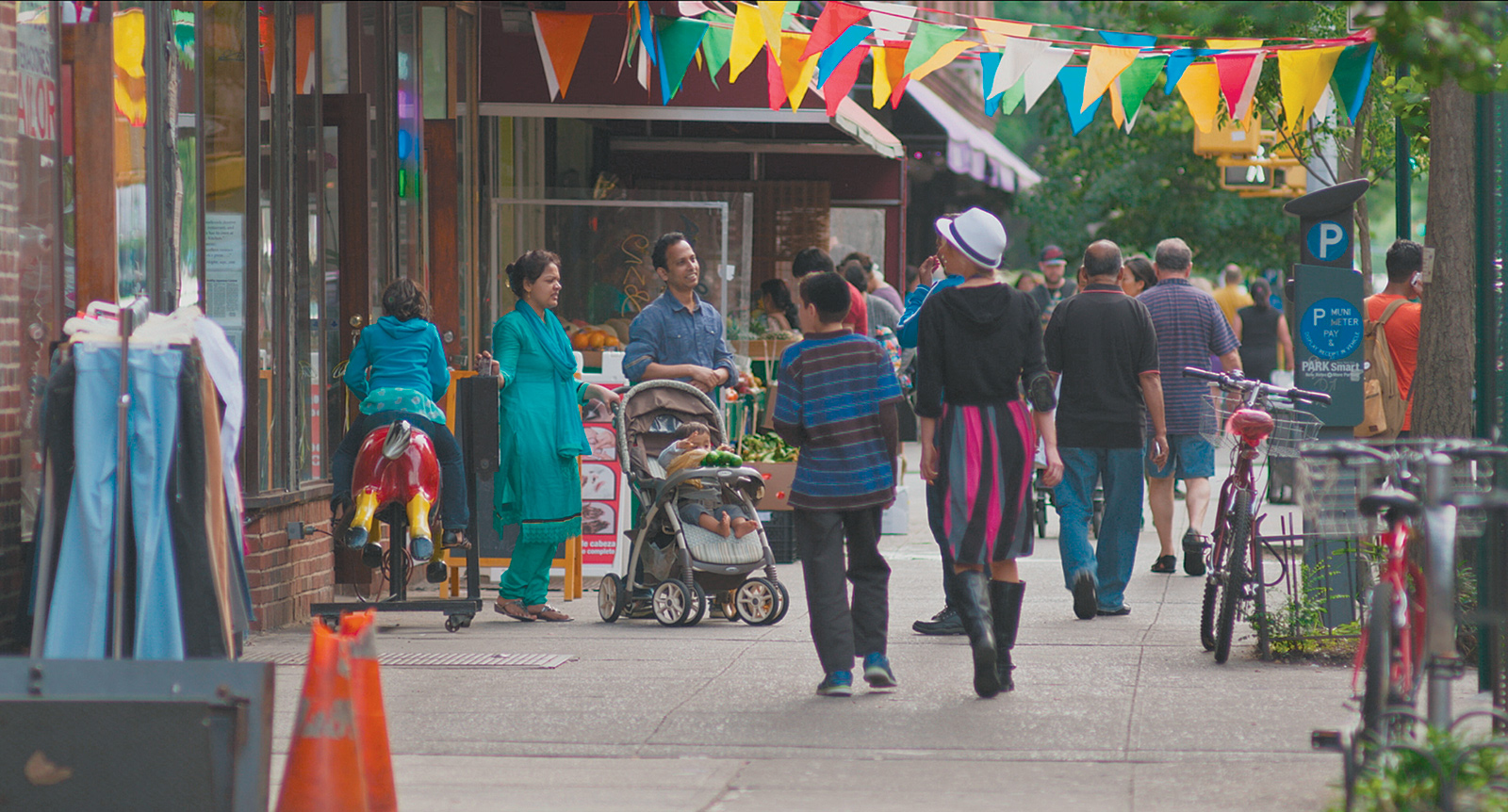Toward the end of In Jackson Heights, Frederick Wiseman’s wonderfully dreamlike new film—a seeming celebration of a neighborhood in Queens that its city councilman calls “the most diverse community in the whole world”—we see two Cuban grandmothers singing, with great joy and abandon, “Yo Vendo Unos Ojos Negros.”
I sell a pair of black eyes
Who wants to buy them from me?
I sell them for being bewitching
Because they paid me badly.
One woman is toothless, both women wear baseball caps, and as they sing verse after verse—about sorrow, fading flowers, lost love—their voices grow stronger, their gestures more exuberant. The scene shifts and the women continue to sing as we look down on streets that have, throughout the film, been alive with shoppers, street vendors, musicians, gardeners, and people of all ages, colors, and ethnicities. It is nighttime, and the streets, well lit by lampposts and flashing neon store signs, seem eerily peaceful. A subway train floats toward us on an elevated track, an ambulance makes its silent way through an intersection, the camera rises, and for the first time we see the world that exists beyond Jackson Heights. We notice a looping necklace of lights—the Queensboro Bridge—and beyond the bridge, the Manhattan skyline. Then, low on the horizon behind the skyline, fireworks explode soundlessly in the dark sky.
It is the Fourth of July, and while festive bombs burst in air to celebrate the nation’s independence, the movie ends. Under the film’s credits, the grandmothers go on singing “Cielito Lindo,” which urges us to make the best of a bad situation. The moment is rich in playfulness and is informed with irony, as is the rest of this most richly textured and sumptuously beautiful of Wiseman’s forty documentaries.
This Issue
January 14, 2016
ISIS in Gaza
How to Cover the One Percent
A Ghost Story
-
1
Wiseman’s first thirty-six films were set in the United States. Since then he has made several films set in Europe. “There have been four French films,” he writes, “each on a subject that was not possible in America. For example, there is no American theater or ballet company with the continuity, tradition, and history of the Comédie-Francaise or the ballet company of the Paris Opéra.” His most recent film, National Gallery (2014), was set in London. ↩
-
2
In several otherworldly scenes where no one speaks, we visit handsome homes and gorgeously landscaped lawns that belonged to people who came to Jackson Heights following World War I. The largely expensive developments with gardens excluded Jews, African-Americans, Greeks, and Italians, and offered its residents luxury living in what were the very first “garden apartments” in America. ↩






